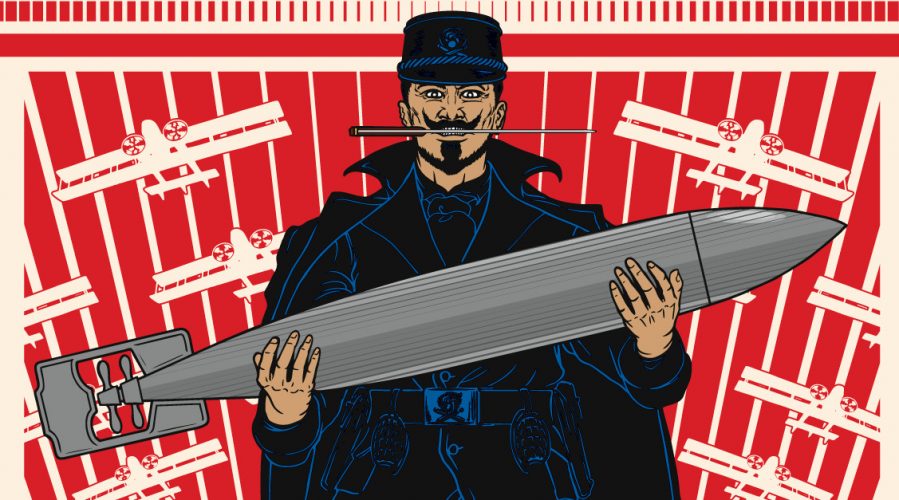Bruce Sterling’s Pirate Utopia is a delightful and odd read. It is a fine work of alternate history focused on a particularly odd time in a little-known city in Europe after the Great War. Because the story of Fiume is so obscure (or, at least was completely unknown to me prior to reading Pirate Utopia), it reads more like historical fantasy than alternate history, and had me pausing regularly to look up people and places I’d never heard of before.
The Free State of Fiume (which is now Rijeka, in Croatia) was an incredible experiment, a strange city-state on the Adriatic run by artists and revolutionaries who were looking toward the future. From the ooze that was the meeting of minds and cultures, drugs and uncertainty, came ideas of socialism, fascism, and anarcho-syndicalism (wherein workers form syndicates in which they control their industrial manufactories; power of the collective in influencing economy and society, etc.). From the moment Fiume declared its independence, it was fought over by its denizens. The four-year experiment ended when Italy decided to annex Fiume in 1924, but the exiled government of Fiume rejected the exile and continued to function, despite the whole affair fizzling out, only to resurface briefly after WWII. Fiume is a fascinating piece of history, well worth examination if this kind of history is your cup of tea.
But I’m not here to talk about the actual history of Fiume. I’m here to talk about Pirate Utopia.
Sterling’s writing conjured an amalgam of Miyazaki (particularly because of Porco Rosso, which is set in the Adriatic) and The Triplets of Belleville, for its surreality and darkness. It’s a book driven not by plot but by character and setting, which have enough going for them to make it a riveting read. The cast have deeply held principles, they’re people of action, deep thinkers, artists, revolutionaries!
But they’re also absurd, in their own way. In a gratifying way. They’re almost caricatures, but I don’t think they’d be that far off from the real thing, given the immense shifts in technology and thought taking place in the twenties. What must it have been like, to be on tons of cocaine and working on radio-controlled weapons and casting down the archaic notions of the past, forging on to a future lit by the fires of industry and war? The thought is intoxicating to some of the characters, even more than the intoxicants themselves.
Pirate Utopia is strange fiction about a time and zeitgeist that may be stranger than the fiction itself. It made me want to discover other odd spandrels left by massive leaps and changes in the world. Was there ever a similar free state nestled in the Americas? In Eurasia? In Africa? Things like Cargo Cults in the pacific, the strange results of colliding culture and knowledge…that’s what Pirate Utopia piqued in my mind.
So, absolutely get this book. Then, maybe join me in a deep dive through Wikipedia to find more cool moments in history.
Pirate Utopia is available on Amazon and from Tachyon Publications.


